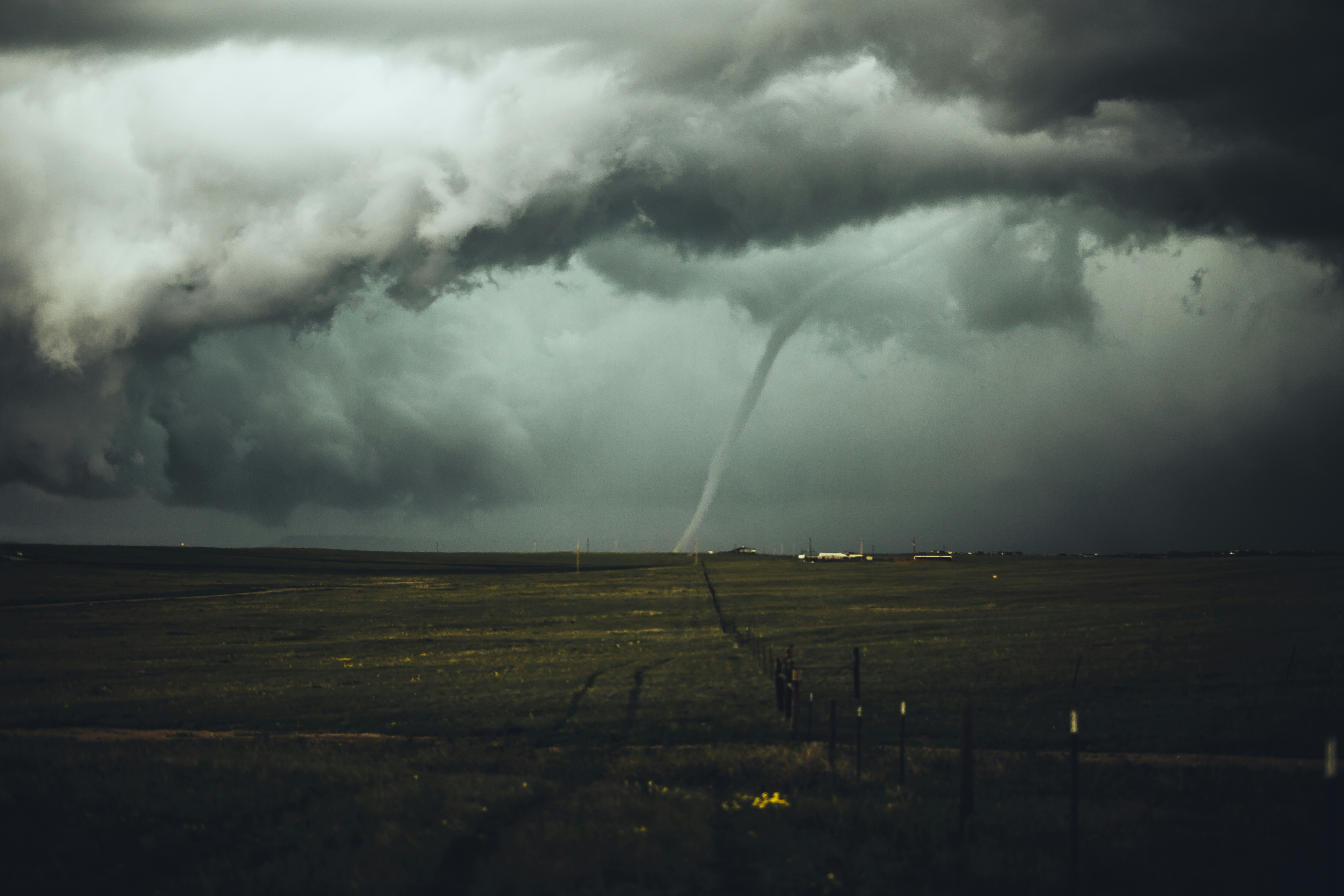Key Takeaways: This article discusses how natural disasters can trigger relapse in individuals recovering from addiction and provides strategies to maintain sobriety during these challenging times. It emphasizes building a support network, establishing routines, coping with stress, and maintaining a positive mindset as key methods for preventing relapse after a disaster. The article encourages readers to seek help and remember that recovery is a journey.
Natural disasters can be devastating, leaving physical destruction and emotional turmoil in their wake. Coping with disasters in recovery can add extra stress and trauma, which can pose a significant risk for relapse. Trauma, triggers, and relapse can often go hand-in-hand. As our climate changes and natural disasters become more frequent, understanding how to maintain sobriety during these challenging times is crucial. Read on to learn more about trauma and substance abuse, how to stay sober during a disaster, disaster preparedness for people in recovery, and more about natural disasters and relapse.
Understanding the Impact of Mental Health after Natural Disasters
Natural disasters—such as hurricanes, wildfires, earthquakes, and floods—can trigger a range of emotions, including fear, anxiety, and grief. Staying sober during disaster recovery requires facing these feelings, which can be overwhelming and may lead to a desire to seek solace in substances. The chaos and uncertainty that accompany disasters can disrupt routines, increase stress levels, and create an environment where relapse appears to be a viable option. In addition, emotional triggers after a natural disaster can be at an all-time high, and this may feel overwhelming.
In addition to the immediate aftermath of a disaster, the long-term effects can also take a toll, and trauma can lead to substance abuse. The fallout from a natural disaster often includes the loss of homes, jobs, and even loved ones, which can exacerbate feelings of isolation and despair. However, it is essential to remember that while these challenges are significant, they can be navigated successfully with the proper support and strategies. If PTSD and relapse may be an outcome, be proactive by searching out support groups for disaster survivors in recovery.
Building a Support Network: Finding Support after a Natural Disaster
One of the most effective ways to practice relapse prevention after a disaster or crisis is to establish a strong support network. This network can include family, friends, counselors, and support groups. Here are some key steps to building and maintaining your support system:
Reach Out to Loved Ones
In the aftermath of a disaster, it’s essential to communicate with those who care about you. Let them know what you’re going through and how they can help. Managing anxiety in recovery after a disaster can be challenging, and you need people in your life whom you can reach out to. Whether it’s through phone calls, text messages, or in-person visits, maintaining these connections can provide comfort and reassurance.
Join a Support Group
One of the best coping strategies for disaster survivors in recovery is joining a local or online support group. Sharing your experiences with others who understand can be incredibly therapeutic. Many organizations, such as Alcoholics Anonymous (AA) or Narcotics Anonymous (NA), offer virtual meetings that can be accessed from anywhere, making it easier to stay connected even during a disaster.
Engage with a Therapist
Professional support can be invaluable during challenging times. A therapist who specializes in addiction recovery can help you process your emotions and develop coping strategies tailored to your specific situation. If you’re in an area that often is impacted by natural disasters, a therapist can help you create a relapse prevention plan for disasters or help you work through other trauma and substance abuse concerns as well.
Establishing a Routine
After a natural disaster, life can feel chaotic and unpredictable. Depression in addiction recovery after a natural disaster is common. However, establishing a daily routine can provide a sense of normalcy and stability, which is crucial for maintaining sobriety. Here are some tips for creating a routine:
Set Daily Goals
Anxiety and substance abuse after disasters are also prevalent, but staying on track with a routine and daily goals can help. Start by setting small, achievable goals each day. This could be as simple as going for a walk, reading a book, or attending a support group meeting. Accomplishing these goals can boost your confidence and reinforce your commitment to sobriety.
Prioritize Self-Care
Natural disasters and mental health concerns can feel overwhelming. Make time for activities that promote your physical and emotional wellbeing. This can include exercise, meditation, or spending time in nature. Engaging in self-care not only helps reduce stress but also reinforces your commitment to staying sober.
Limit Exposure to Triggers
Immediately seek out recovery resources after natural disasters, as they can bring back memories of past trauma and substance abuse or other stressors. Be mindful of your environment and limit exposure to triggers that may tempt you to relapse. This might mean avoiding certain areas or situations that remind you of your struggles with addiction.
Coping with Stress and Anxiety
Stress and relapse after a natural disaster are common, but it doesn’t have to be part of your story. Natural disasters can heighten feelings of stress and anxiety, which are often precursors to relapse. Developing healthy coping mechanisms is crucial for effectively managing these feelings. Here are some strategies to consider:
- Practice mindfulness and meditation: Mindfulness techniques, such as meditation or deep-breathing exercises, can help ground you during moments of anxiety. These practices encourage you to focus on the present moment, reducing feelings of overwhelm and promoting a sense of calm.
- Stay informed, but don’t overwhelm yourself: It’s important to stay informed about recovery resources and community support following a disaster. However, excessive exposure to news reports can increase anxiety. Limit your media consumption to specific times each day to avoid feeling overwhelmed.
- Express your feelings: Writing in a journal or engaging in creative outlets, such as art or music, can provide a safe space to express your emotions. This can be particularly helpful in processing grief and loss, allowing you to reflect on your experiences without turning to substances.
Embracing a Positive Mindset
When it comes to disaster recovery and addiction, maintaining a positive outlook can be challenging during difficult times, but it is essential for long-term recovery. Below are some tips for cultivating a positive mindset.
Focus on Gratitude
Take time each day to reflect on the things you are grateful for, even amid adversity. This practice can shift your focus from negative experiences to positive aspects of your life, reinforcing your commitment to sobriety.
Visualize Your Future
Trauma and substance abuse do not have to define you. Spend time envisioning a future where you are living a fulfilling, sober life. This can provide motivation and remind you of the reasons you initially chose to pursue recovery.
Celebrate Small Wins
Acknowledge and celebrate your successes, no matter how small they may seem. Each day you remain sober is a victory worth recognizing. This practice can help reinforce your commitment to recovery.
Natural disasters can be immensely challenging, especially for those in recovery from trauma or substance abuse. However, by building a strong support network, establishing a routine, coping with stress effectively, and embracing a positive mindset, you can navigate these turbulent times without succumbing to the urge to relapse.
If you or someone you know is struggling with trauma or substance abuse, Mountainside can help. We offer individualized, comprehensive programs for people at all stages of their recovery from substance abuse and co-occurring disorders—we meet you where you are. Contact an admissions specialist today for more information.
If you or a loved one is struggling with addiction, Mountainside can help.
Click here or call (888) 833-4676 to speak with one of our addiction treatment experts.

 By
By 






